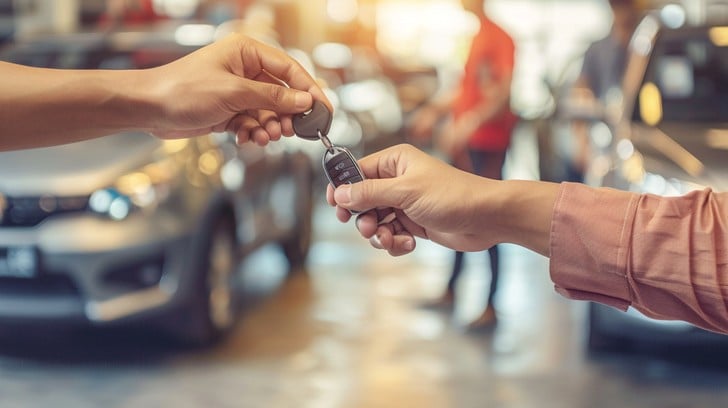Buying your first car feels like crossing a major milestone. The smell of a brand-new interior, the sound of the engine, the freedom of the open road—it’s exciting. But the moment that excitement fades, reality sets in. A car isn’t just about getting from one place to another; it’s a machine that requires care, attention, and understanding. Knowing a few key things early on can save you money, stress, and a lot of unnecessary headaches.
Here are some important things every new car owner should know.
1. Read Your Owner’s Manual
It might sound boring, but the owner’s manual is your car’s guidebook. It tells you how everything works—from dashboard lights to the right tire pressure. Most people ignore it until something goes wrong. Taking time to understand your car’s specific maintenance schedule, oil type, and warning signs helps you avoid costly mistakes. Think of it as the rulebook that keeps your car in good shape.
2. Learn Basic Maintenance
You don’t need to be a mechanic to care for your car. Simple things like checking the oil level, monitoring tire pressure, and topping up windshield washer fluid can make a big difference. Low oil can damage the engine, and under-inflated tires can reduce fuel efficiency and wear out faster. Get into the habit of checking these once every few weeks. It takes less than five minutes and helps you stay ahead of problems.
3. Pay Attention to Warning Lights
Those lights on your dashboard aren’t decorations. Each one means something important. A check engine light, oil light, or brake warning can point to issues that need attention right away. Don’t ignore them or try to guess the cause. If something looks unfamiliar, check your manual or visit a trusted mechanic as soon as possible. Small warnings often lead to big repairs when ignored.
4. Keep Up with Regular Servicing
Every car has a recommended service interval, usually every few months or after a certain number of kilometers. Sticking to this schedule keeps your car running smoothly and prevents long-term damage. Regular oil changes, tire rotations, and inspections can extend your car’s lifespan and help maintain its resale value. A well-maintained car always performs better and costs less to own over time.
5. Know How to Handle Emergencies
Flat tires, dead batteries, or engine overheating can happen to anyone. It’s important to know what to do when they occur. Keep a basic emergency kit in your trunk—jumper cables, a flashlight, a tire pressure gauge, and a first-aid kit. If your car ever breaks down on the road, turn on your hazard lights and move to a safe spot before calling for help. Being prepared makes a big difference when things don’t go as planned.
6. Practice Gentle Driving
Fast acceleration, hard braking, and sharp turns don’t just use up more fuel—they wear your car out faster. Smooth driving habits protect your brakes, tires, and engine while giving you better control. If you’re driving a new car, gentle handling during the first few weeks helps the parts settle properly and keeps performance consistent in the long run.
7. Don’t Neglect Your Tires
Your tires are the only part of the car that touches the road, yet they’re often overlooked. Check for uneven wear, cracks, or low tread depth. Rotate them as recommended to ensure even wear across all tires. Properly inflated tires improve safety, comfort, and fuel economy. If your car feels shaky or pulls to one side, it might be time for an alignment check.
8. Keep Important Documents Handy
Always have your driver’s license, registration, and insurance papers in your car. It’s also wise to keep a copy of your mechanic’s contact, roadside assistance number, and emergency contacts. In case of an accident or a traffic stop, having everything organized makes the situation easier to handle.
9. Learn Basic Car Etiquette
Driving is more enjoyable when everyone respects the road. Use turn signals, avoid tailgating, and be patient with other drivers. These habits don’t just keep you safe—they make the roads safer for everyone. Remember that owning a car means being responsible, not only for your vehicle but also for how you use it.
10. Protect Your Car from the Elements
Sun, rain, and dust can affect your car’s paint and interior. If you can, park in a shaded or covered area. Wash your car regularly to remove dirt and salt buildup that can cause rust. Use protective wax or coatings to keep the paint looking fresh. A little care now prevents wear that might cost a lot later.
11. Understand Your Insurance
Car insurance can be confusing, but it’s one of the most important things to understand. Know what your policy covers, how claims work, and what you’re responsible for in case of an accident. Review it annually to see if you can get better coverage or lower rates. Many new car owners overlook this step and end up paying more than they need to.
12. Keep Track of Fuel and Expenses
Keeping a record of your fuel usage, maintenance costs, and repairs helps you understand how much your car truly costs to own. It also helps you spot trends—like a sudden drop in fuel efficiency—that might signal something’s wrong. A simple notebook or phone app can make this easy to manage.
Owning a car brings freedom, but it also comes with responsibility. The more you understand your vehicle, the smoother your ownership experience will be. Treat your car like a long-term investment—one that rewards you with reliability and comfort when you take good care of it.
At the end of the day, being a car owner isn’t just about driving. It’s about understanding your machine, respecting the road, and keeping yourself and others safe along the way.


